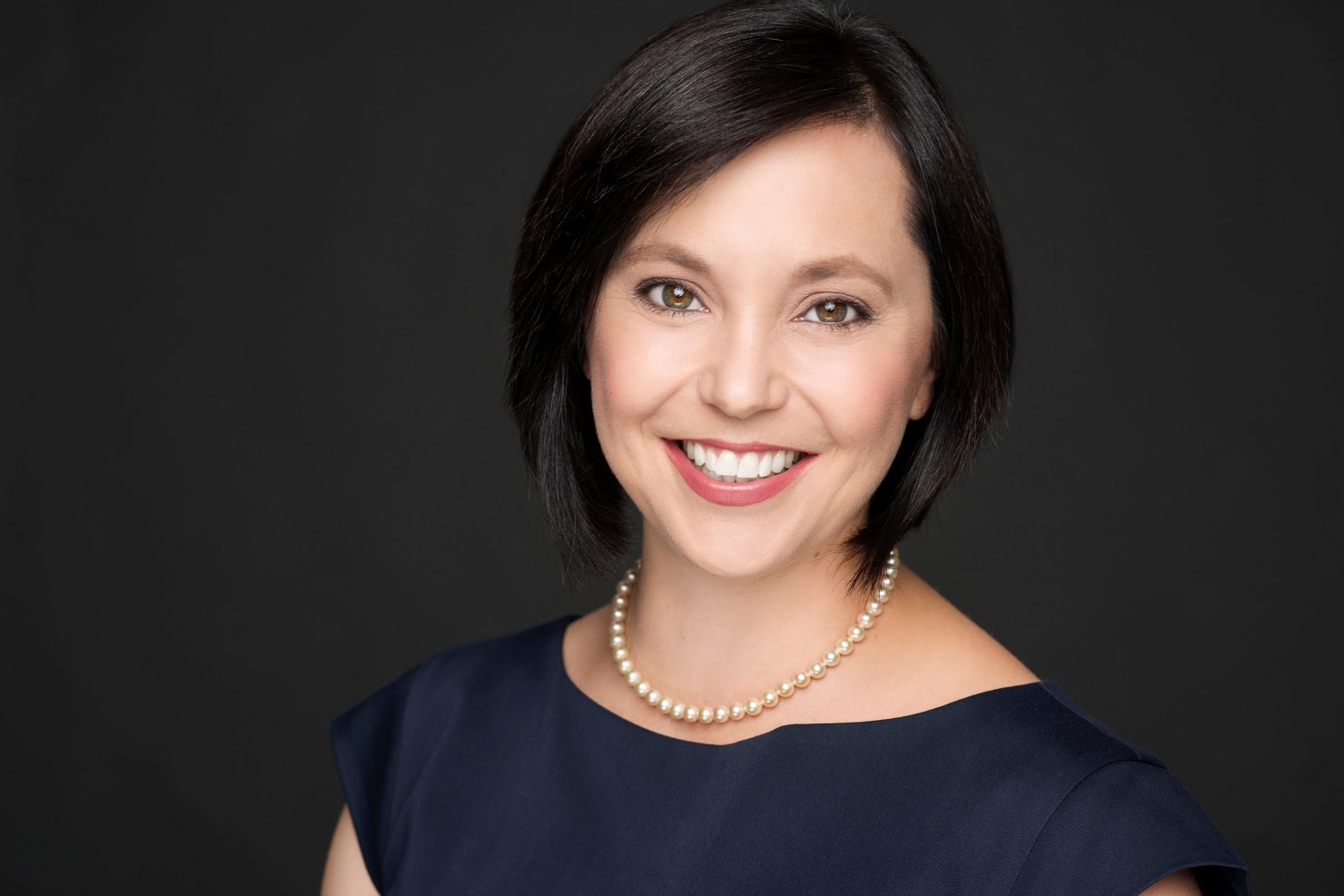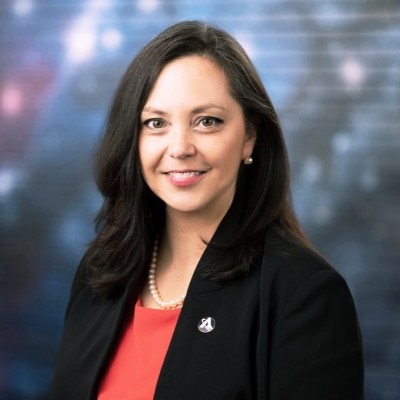
Making space sustainable will advance Biden's agenda (op-ed)

Charity Weeden is vice president of global space policy at Astroscale U.S. She contributed this article to Space.com's Expert Voices: Op-Ed & Insights.
Recently, three significant events have underscored the urgent threat to orbital environmental stability: Two large satellites spontaneously broke up, releasing new debris into orbits that are already highly congested, and a Chinese Long March rocket stage crashed back to Earth in an uncontrolled reentry.
These dramatic events captured both headlines and the attention of the White House, and they serve as a timely reminder for the Biden Administration that securing the safety of space infrastructure is critical to their broader economic and national security goals.
Related: The biggest spacecraft to fall uncontrolled from space
Around 3,000 active satellites currently orbit Earth, and tens of thousands more are planned for launch in the next 10 years. Currently valued at more than $350 billion, the sector is projected to grow to $1 trillion by 2040. But spacecraft operators face a longstanding predicament: once in orbit, historically there has been no way to repair, refuel, reposition or safely remove failed satellites away from oncoming space traffic or debris. More space debris means the potential for more destructive collisions, resulting in a negative cascading effect on the space environment, markets and critical services.
Addressing the problem of space debris presents both challenges and opportunities. In that respect, it is reflective of space policy more generally. As former Florida senator Bill Nelson takes the reins as NASA administrator, and Vice President Kamala Harris assumes her leadership role as the head of the National Space Council, they and other senior officials should draw on the thinking the Biden Administration has articulated in two other contexts: foreign policy and infrastructure.
President Biden's National Security Adviser, Jake Sullivan, has articulated a new vision of building a "foreign policy for the middle class," focusing on deliverables to ordinary Americans. What would a space policy for the middle class consist of? Primarily, a recognition of the huge and growing job-creating power of the space industry. Exploration remains central to our national interests, and support for those programs generates many jobs. But major economic expansion and a thriving innovative spirit are also generated by the development, launch and maintenance of satellites that power our digital infrastructure.
Get the Space.com Newsletter
Breaking space news, the latest updates on rocket launches, skywatching events and more!
Not a day goes by now without an Administration official publicly touting the benefits of the American Jobs Plan, President Biden's proposal to invest some $2 trillion in restoring and modernizing American infrastructure and create millions of quality jobs. No less than for America's bridges and tunnels, the same logic applies to ensuring the sustainability of the infrastructure on which our modern communications depend.
But not only dollars are needed. So is bureaucratic coherence. Currently, the responsibilities for dealing with orbital debris, including failed U.S. satellites and other high-risk objects, are spread out across multiple government agencies. Today, there is no specific policy or agency direction for active remediation of failed U.S. satellites or other high-risk objects such as upper-stage rocket bodies. Under the leadership of the National Space Council, the Biden Administration should coordinate policy on space environmental management issues, including orbital debris mitigation and remediation using in-space logistics and orbital services.
Space junk cleanup: 7 wild ways to destroy orbital debris

This National Space Council effort needs to create a policy environment where U.S. government and industry operators are incentivized to modernize their spacecraft designs to be serviceable. With the aid of docking interfaces, commercial on-orbit servicing technologies can both attend to satellites needing inspection and repair and clean up dangerous debris, acting as "roadside assistance" in orbit to maintain, repair or remove aging and failed satellites. These services boost the safety and reliability of space operations and are a game-changer for the overall economics of space, increasing the returns on existing satellites by facilitating longer revenue-generating lifetimes, preventing service disruptions and protecting investments from orbital debris.
The Biden Administration should build on commitments made during the Trump Administration, such as a directive on the management of space traffic and a National Space Policy that commits to developing technologies to mitigate the risk of orbital debris. Congress must be engaged as a partner in this reorganization and policy development, to ensure that functionality is prioritized over jurisdictional turf, and the necessary authorities and funding are provided.
The other needed focus of U.S. efforts is consistent with broader Biden foreign policy goals: the restoration of U.S. leadership of an international coalition to solve global problems. The task force should also include as a major contributor the State Department, whose diplomats will be tasked with the delicate negotiations necessary to update international space sustainability guidelines and norms of behavior, drawing on the U.S. example. U.S. leadership requires multilateral coordination with our like-minded international partners. Together, we should agree on standards for safe distance operations, on-orbit servicing of satellites and debris removal.
As these understandings coalesce, we should move to international organizations like the United Nations Office for the Peaceful Use of Outer Space to gain broader adherence. Following this sequence will also put us in the strongest position to advocate for coordination that serves our interests even with our strategic rivals, Russia and China, whose need for a safe and sustainable space environment is no less than our own.
Looking forward, the critical functions and economic advantages that we enjoy from satellites need protecting. Applying its own logic from other policy areas, the Biden Administration can lead in transforming the space domain from a minefield of uncertainty and waste to a vibrant hub for digital commerce and services, exploration and discovery, stabilized and preserved for the benefit of future generations. Let's not wait for a disaster in space — let's get to work.
Follow all of the Expert Voices issues and debates — and become part of the discussion — on Facebook and Twitter. The views expressed are those of the author and do not necessarily reflect the views of the publisher.
Join our Space Forums to keep talking space on the latest missions, night sky and more! And if you have a news tip, correction or comment, let us know at: community@space.com.

I live at the nexus of technology, policy, and sustainability. At Astroscale U.S., I coordinate a global team of policy professionals in government relations, licensing and regulation, best practice and standards formulation, strategy and plans, and more. I harmonize these policy efforts across Astroscale’s global locations, working in step with engineering, business development, and marketing and communication teams. Together, we are defining the path forward for an in-orbit services market. My 30-year aerospace career has given me perspective: why teamwork, leadership, and service matters and why we all win when we include diverse voices. I am a fellow at the Canadian Global Affairs Institute, board advisor to Via Satellite, mentor to young professionals, guest lecturer at George Washington University and other academic institutions, and podcast co-host on all things space sustainability (check out Space to Grow!).









